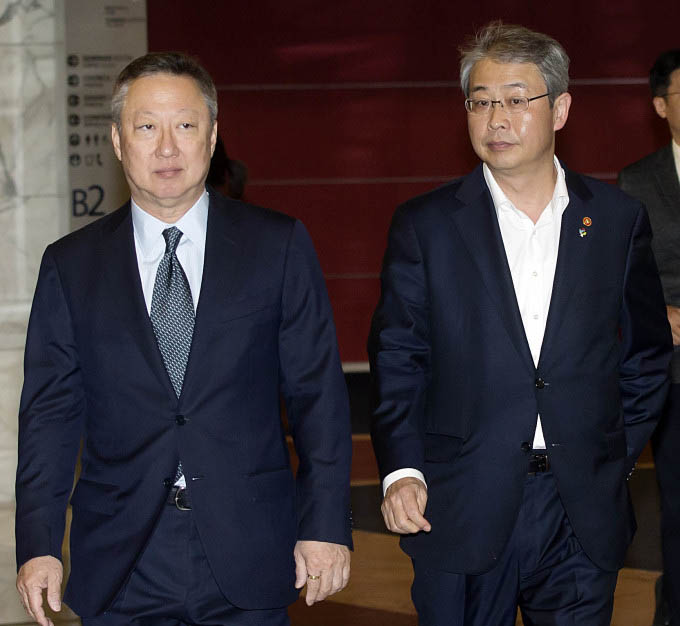A key matter in corporate restructuring is how interested parties take their share of losses.
Chairman Yim Jong-yong of the Financial Service Commission (FSC), said the purpose of the restructuring is not to kill any businesses, but to revive them however painful the processes may be. He made the statement at the Breakfast Session for CEOs held at the Korea Chamber of Commerce and Industry (KCCI) in Seoul on June 16.
Yim went on to note that the creditors, shareholders and unions, all the interested parties, should band together and cooperate to save their companies. Only then will the government and creditors do what it takes to help those firms to get back to normal.
The FSC chairman said the major purpose of the restructuring is to resurrect the competitiveness of the business firms to help them get back on their feet.
The main reason for business firms that failed to survive the restructuring has been their unwillingness to share pains, Yim said, recalling from his experiences going back for over 30 years.
He said the businesses that survived restructuring drives were those that willingly absorbed all necessary pains.
Those that tried to keep their own interests could not make it through the hard times and failed to survive, the FSC chairman said.
The government has been dealing with business firms in default according to three principles. The government will evaluate their operations with strict criteria, while firms in default will make their own efforts to recover their business operations to have speedy recoveries. The government chose to relay on those three principles to increase the chances of success of the recovery effort involving the government cooperating with creditors and business firms in financial trouble, the FSC chairman explained.
He went on to note that the restructuring has to be fast, well planned and go through a detailed process to be successful, adding that it should by no means mar the normal flow of the financial market and bring other negative factors in the process, Yim warned.

FSC Chairman Yim and Chairman Park Yong-maan of KCCI enter the meeting of CEO together at KCCI building near South Gate in Seoul.(Photos: KCCI)
On blaming the Korea Development Bank for a number of the companies under its management having financial problems, Yim said the policy loans are still needed to bail out those corporations in financial trouble. Recently, the Audit Board criticized that KDB has not done its job right by letting Daewoo Shipbuilding go deeper into financial trouble, calling for proper punitive actions against KDB for its negligence.
Yim said it is very hard to find an organization like KDB, which has such a lot of experience and capacity in corporate restructuring, adding he needs the power to encourage the state-run bank and take advantage of its capacity and experience to do an outstanding job for business firms, and furthermore, to the industries so that the economy will continue to be on its growth path. The Financial Services Commission was established in 2008 after a series of changes in Korea’s financial supervisory system. In the wake of the 1997 Asian financial crisis, there was a growing need for an integrated supervisory authority to oversee the financial industry.
The Financial Supervisory Commission, the predecessor to the current Financial Services Commission, was founded in April 1998 as a single supervisory authority integrating financial supervisory functions of the former Ministry of Finance and Economy - currently Ministry of Strategy and Finance, MOSF - and the Bank of Korea.
In February 2008, the Financial Supervisory Commission was integrated with the Financial Policy Bureau of the then Ministry of Finance and Economy to become the Financial Services Commission (FSC).
